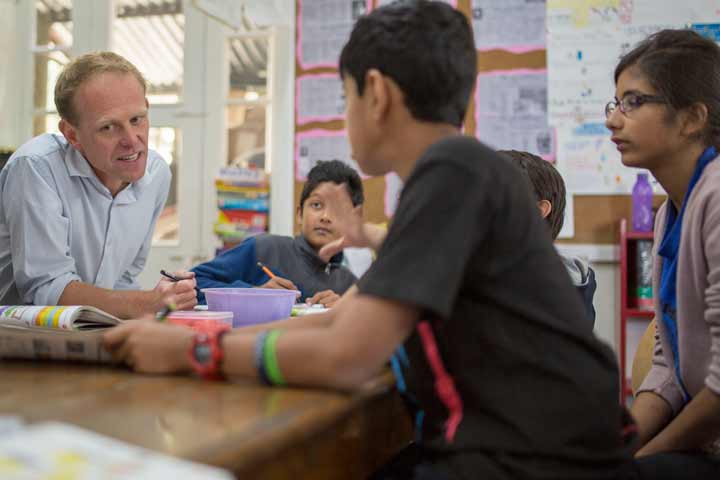
16 Mar To understand and to be understood
It’s not hard to find distressing news. From the horrors of war to stories of greed and corruption, there’s plenty to be distressed about! This week I’ve also read disturbing news of increased instances of racially, sexually and ethnically discriminatory language and behaviour on school and college campuses around the world – particularly in the USA.
This is sad news. Against all that is hurtful and destructive in the world, schools should offer a way out of our modern madness. They should be places where young people feel safe and where differences can be respected and celebrated. They should be places where every individual is viewed and valued as equal. If ever there were places where young people might be inspired by a vision of peace and tolerance, surely it’s at school!
Agree to disagree
This doesn’t mean we will always agree with each other. In fact, we should encourage young people to engage in disagreement! But this should not be the disagreement which voices itself through hatred. It is possible to disagree without being disagreeable! When we disagree, we should do so from a place of respect (which literally means ‘to look twice’). We strive first to understand the other’s point of view – even if that means holding lightly our own cherished opinions.
Sometimes we will leave a dialogue greatly enriched by understanding someone else’s perspective. Sometimes we may even leave with a completely new set of ideas and values we now call our own.
Many conversations are ‘discussions’ in which people eagerly share their ideas but keep their ears and minds closed. The word ‘discussion’ literally means ‘to break apart’. It’s often about saying, “I’m right, you’re wrong and if I can shout louder or hold on more tightly to my viewpoint then I will win!”
There is another way of dealing with controversial issues which doesn’t involve the release of destructive energy. It’s called ‘dialogue’. Dialogue is all about achieving a deeper level of understanding through a process of sharing and reflection. The word ‘dialogue’ brings together the Greek terms ‘dia’ (through) and ‘logos’ (word, thought). It is the patient search for new meanings – even if that means temporarily suspending or setting aside cherished ideas and concepts to really hear what the other person is saying.
Constructive divergence
Sometimes we will leave a dialogue greatly enriched by understanding someone else’s perspective. Sometimes we may even leave with a completely new set of ideas and values we now call our own. On occasion, we may leave a dialogue realising we have fundamentally incompatible points of view. But this kind of disagreement exists on the other side of understanding and is very different from the destructive type of disagreement which is arrogant, blinkered and often ignorant.
We encourage our students to discover the beautiful diversity of the remarkable world we inhabit. But we also want our students to recognise that the world is not always made up of neat categories of right and wrong.
Woodstock rejects discrimination. We stand against marginalisation. We cherish diversity. We value inclusiveness. We strive to see our common humanity beneath the differences of gender, creed, colour, culture or circumstance. We encourage our students to discover the beautiful diversity of the remarkable world we inhabit. But we also want our students to recognise that the world is not always made up of neat categories of right and wrong. There are messy ambiguities. Bigotry and hatred flow from the ideology that ‘If I am right you must be wrong’. The global mindedness I want our students to acquire includes recognising that sometimes we may both be wrong and that sometimes, despite very different points of view, we could both be right!
The educator and businessman, Stephen Covey, put it brilliantly, “If I were to summarise in one sentence the single most important principle I have learned in the field of conflict resolution, it would be this: Seek first to understand, then to be understood”.
Jonathan Long, Principal
Have you heard about Woodstock’s Scholarships for Peace programme?
Our Scholarships for Peace initiative hopes to build understanding in some of the regions which need it most, by providing opportunities to children from conflicted affected regions. Find out more here, including how you can support the programme.






No Comments